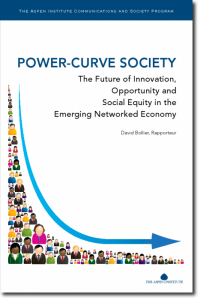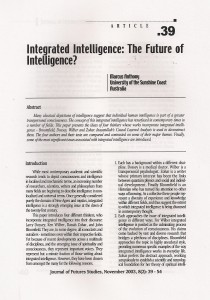
Power-Curve Society, written by David Bollier, examines how technological innovation is restructuring productivity and the social and economic impact resulting from these changes. It addresses the growing concern about the technological displacement of jobs, stagnant middle class income, and wealth disparities in an emerging “winner-take-all” economy. It also examines cutting-edge innovations in personal data ecosystems that could potentially unlock a revolutionary wave of individual economic empowerment. Power-Curve Society is the Report of the Twenty-First Annual Roundtable on Information Technology, a dialogue convened by the Communications and Society Program.
Download PDF | Read on Scribd | Order Copies | On Twitter: #powercurve

TABLE OF CONTENTS
Foreword, Charles M. Firestone
Introduction
The Innovation Economy
The New Economy of Personal Information
The Power-Curve Phenomenon and its Social Implications
Jobs in the Power-Curve Nation
The Social Implications of the Power-Curve Economy
Government Policies and Leadership Responsibilities
Conclusion
Roundtable Participants
About the Author
About the Aspen Institute Communications and Society Program





